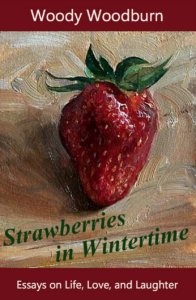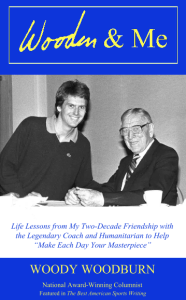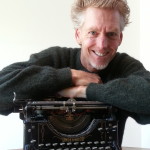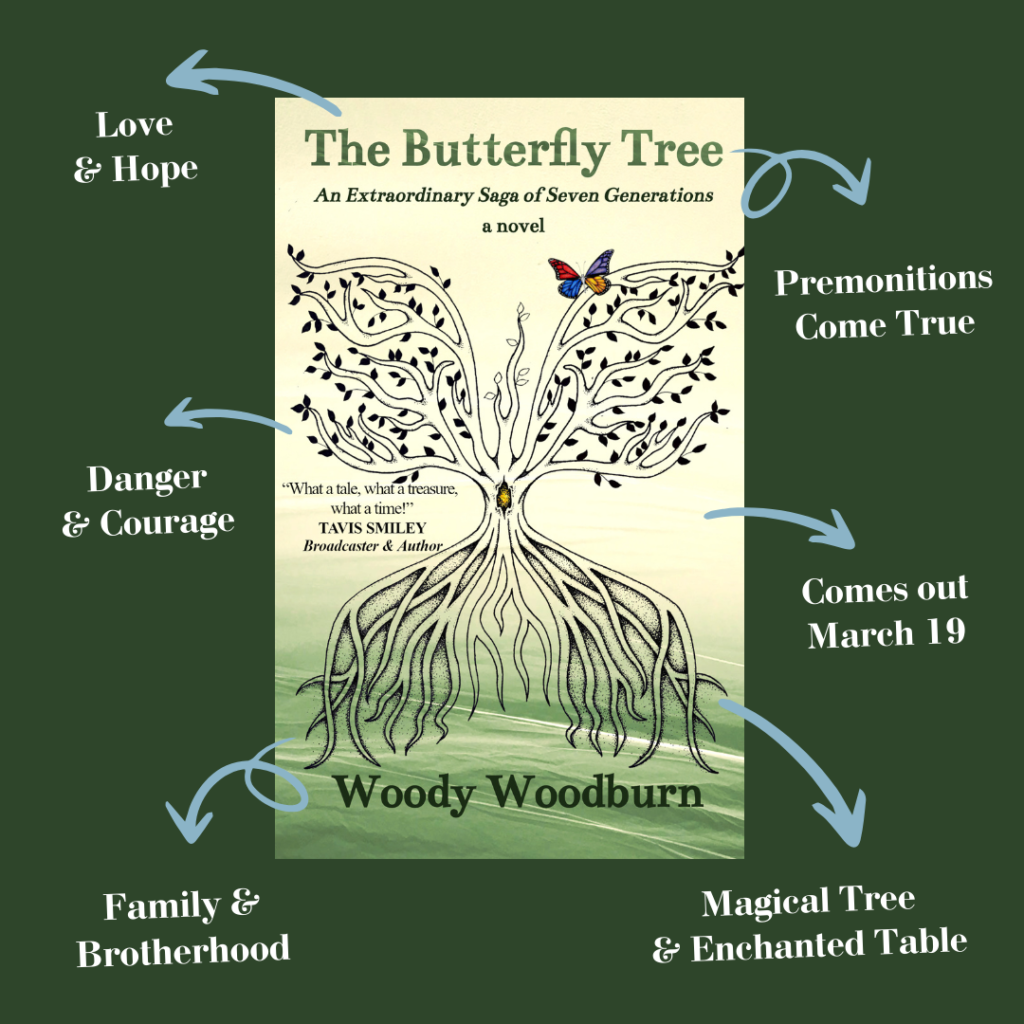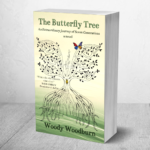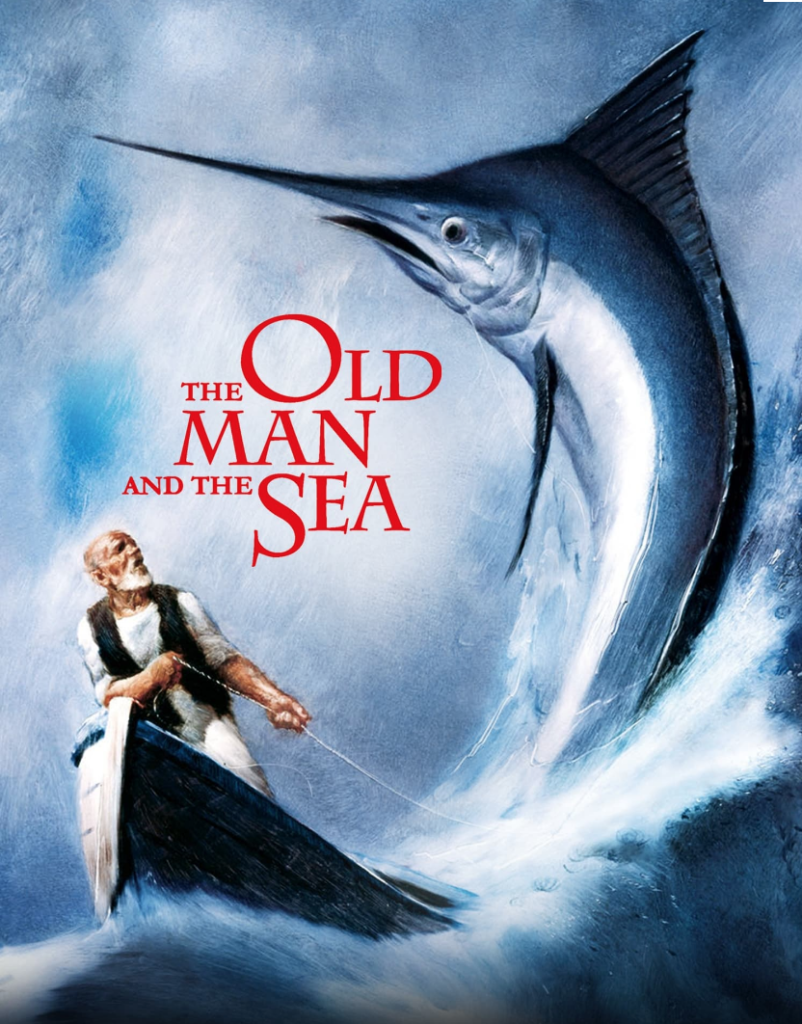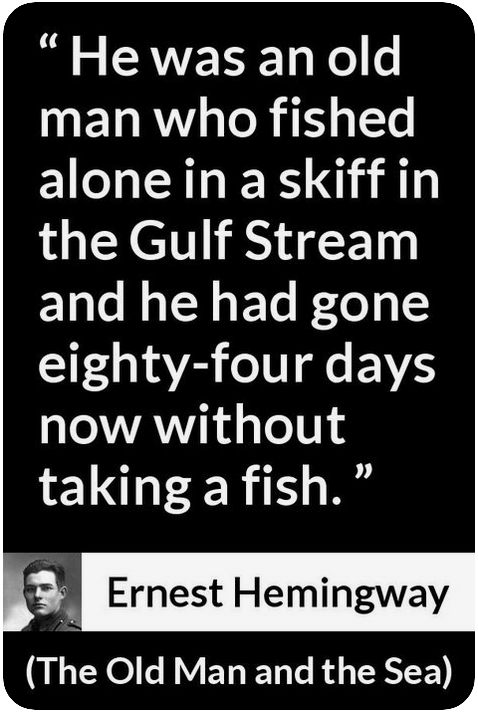Woody’s new novel “The Butterfly Tree” is available at Amazon (click here) and orderable at all bookshops.
*
A good many readers in response to the column two weeks ago excerpted from my new novel “The Butterfly Tree: An Extraordinary Saga of Seven Generations” asked for more. Who am I to argue with taking the day off? And so, from the opening chapter, an encore:
Ka-BOOM!
Thunder exploded, its volume deafening, its lightning flash brilliant as the Biblical bolt that blinded Saul, shooting down from the heavens with the earthshaking power of a million hatchet blows. The blade of electricity cleaved The Black Walnut Tree as effortlessly as a honed hunting knife slicing a stalk of celery.
A life of 231 years ended in a split-second.
The regal tree was sliced cleanly in two, from leafy crown to grassy ground, the splayed halves as identical as a left and right hand. The newly exposed surfaces seemed as if a master cabinetmaker had spent endless hours sanding, varnishing, buffing.
In death The Black Walnut Tree had been a lifesaver, shielding a clan of Roma migrants from being lanced by the thunderbolt. The ensemble, encamped along the riverbank in March 1852, had sought shelter beneath the tree’s colossus canopy—most importantly, Aisha Beswick, who was in labor with her first child. Huddled alongside Tamás, the expectant father, was Dika, Aisha’s mother and a revered fortuneteller.
Half an hour before the fateful lighting strike, as moody clouds roiled ominously darker, darker, closer, closer, Dika bemoaned, on the edge of weeping: “The peril is great for Aisha and the baby. We must fetch a doctor or they shall both die, this I know.”
Without hesitation, Hanzi volunteered for the emergency errand. The teenager, as if a descendant of the wing-footed Greek messenger god Hermes, raced two miles to town with such swiftness that the falling raindrops seemed to miss him.
*
Aisha’s contractions became more frequent, more fierce, more worrisome.
The apocalyptic sky was having its own contractions, three-hundred-million-volt flashes of lightning followed by deafening whipcracks.
“Oh, Lord, please watch over my child,” Dika said softly, head bowed, “and keep safe my precious grandbaby.”
Dika’s prayers seemed suddenly answered with Doc’s hasty arrival, but just as he set down his medical bag—
—Ka-BOOM!
The fateful thunderbolt smote The Black Walnut Tree like a mighty swing of Paul Bunyan’s giant axe. Miraculously, no one was killed by the lightning strike, nor injured by the falling twin timbers. All, however, were dumbstruck with fright.
All, except Doc.
“Gentlemen, I need you to hold a blanket overhead—like a tent,” Doc calmly directed the gathering. “We want to keep our expectant mother here as dry and comfortable as possible.”
As this was being done, Doc removed his raincoat and favorite derby hat, dropped to one knee, went to work.
Another wave of contractions washed over Aisha and she wailed loud as a thunderclap.
“Omen bad,” Dika sobbed, staring at the felled tree halves. “Two sunrises this poor child will not live to see.”
Not a believer in prophecies, Doc was deeply concerned nonetheless. His heart raced like Hanzi’s feet had for this was the first baby—the very first—Dr. Lemuel Jamison would endeavor to deliver all by himself.
Only two weeks earlier, Doc had completed a nine-month obstetrics internship at Cincinnati’s Commercial Hospital that was affiliated with The Medical College of Ohio from which he graduated top of his class.
During his internship, Doc delivered countless babies. Always, however, there had been an experienced obstetrician by his side, ready to help—or take over fully—if things turned dicey.
Things were dicey now.
And about to turn dicier.
* * *
Excerpt from “The Butterfly Tree” by Woody Woodburn, BarkingBoxer Press, all rights reserved, now available at Amazon and other online booksellers, and many bookshops. Woody can be contacted at woodywriter@gmail.com.
Essay copyrights Woody Woodburn
* * *
Woody’s new novel “The Butterfly Tree” is now available in paperback and eBook at Amazon (click here), other online bookstores, and is orderable at all bookshops.
*
Essay copyrights Woody Woodburn
